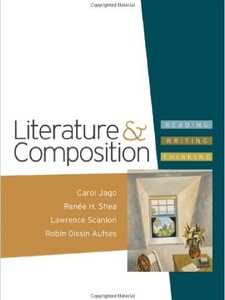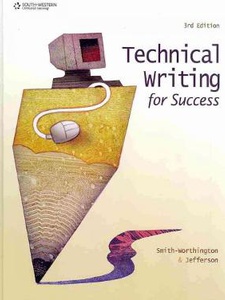propose (v) particular (a)
mystery (n)
notorious (a) account (for)
(v) twins (n)
bring out (v) discrepancy (n)
grief (n) remind (of) (v)
drown (v) heart-breaking (a)
to mean no harm
to speak with rapture
to be all the rage
to put one’s whole mind
. something
to make a noise
on
to get a matter straight
to corne to life
to reveal a secret
to take pains
to
take a look (at) [54]
Exercises
I. Explain and expand on the
following:
1. Indeed, my powers seemed a
bit under a cloud.
2. -I had the Unabridged, and
I was ciphering around in the back end, hoping I might tree her
among the pictures.
3. It has often been said,
and by people who would not flatter and who could have no inducement
to flatter, that I am quite remarkable in that way.
4. Will you let me ask you
certain questions calculated to bring out the salient points of your
public and private history?
5. This solemn, this awful
mystery has cast a gloom over my whole life.
6. Well, I believe I have got
material enough for the present, and I am very much obliged to you
for the pains you have taken.
II. Paraphrase the following
sentences from the text:
1.
I was not
feeling bright that
morning.
2.
. . . they always speak of it with
raptur.
3.
… it is the custom, now, to interview any man who
has become notorious.
4.
It is all
the rage now.
5.
This is a
great grief to me.
6.
/ will put
my whole mind on it.
7.
. . . we
can never
get this
matter straight.
8.
How do you
account
for that?
9.
. . . you make
yourself out to be one
hundred and eighty.
10.
Many a time it has seemed to me
like a discrepancy.
11.
…I couldn’t
make up my mind.
12.
I would
give whole worlds to know.
13.
…I will tell you a secret now, which I never have
revealed to
any creature before.
III. Give corresponding
colloquial variants for the following:
1. They could have no
inducement to flatter… 2. This solemn, . . . mystery has cast a
gloom over my whole life. 3. Then the young man reverently withdrew.
IV. Paraphrase the following
sentences using word combinations from the text:
1.
The young man worked
for one
of the evening newspapers.
2.
I felt that
my capacities were a bit dulled.
3.
I could not make out his hand and had
to apply for help.
4.
This colour is very
fashionable now.
5.
The matter will hardly be cleared up.
6.
It always takes one a long time to come to a decision.
7.
Thank you for the trouble you have taken. [55]
8.
I promise that I won’t betray your confidence and won’t
let oat what you told me.
9.
Although he worked
perseveringly he
could not decipher the manuscript.
10.
In a few minutes she recovered
consciousness.
11.
His account of the event sounded most
discouraging.
12.
There was considerable
contradiction between
the two, accounts of the interview.
13.
He expressed
his delight at her singing.
14.
You praise
me much more than I deserve it.
V. Give
definitions of the following words using an English-English
dictionary:
inducement, discrepancy
notorious, disheartening, salient cipher, bring out, account for
VI. Translate the following
into Russian:
1. Hoping it’s no harm… 2.
Indeed, my powers seemed a bit under a cloud. 3. I had the
Unabridged, and I was ciphering around in the back end, hoping I
might tree her among the pictures. 4. It has often been said, and by
people who would not flatter and who could have no inducement to
flatter, that I am quite remarkable in that way. 5. I had not heard
of it before. It must be very interesting. 6. Will you let me ask
you certain questions calculated to bring out the salient
points of your public and private history? 7. If you were at his
funeral, he must have been dead; and if he was dead, how could he
care whether you made a noise or not? 8. Anyway I don’t see how they
could ever have been such a blundering lot as to go and bury the
wrong child.
VII. Give English equivalents
for the following:
стараться,
прилагать усилия; принять peшение;
выяснить;говорить с восторгом;
быть модным;объяснять что-либо; раскрыть
секрет; шуметь;напоминать кому-либо о
чем-либо; льстить; пользующийся дурной
славой; душераздирающий; приходить в
себя; взглянуть.
Make
up short dialogues around these words and word combinations.
VIII. Use
one of the verbs of feeling and perception in the Continuous
form.
Pattern your own sentences
after this one: «I was not feeling bright that morning».
IX. Make up two-line
dialogues patterned on those below.
Each dialogue should
begin with an elliptical question,
1. — Doing anything
to-night?
— No, why?
2. — Finished your work?
— Almost.
3. — Hurt yourself?
— I’m afraid I have.
4. — Seen anything of Bob?
— Not much.
5. — Going anywhere
to-morrow night? — To the theatre.
X. Fill in the missing parts
of the dialogues (use elliptical questions). 1 -….?
1.- …?
— To the post-office. 2. —
…?
— No, why?
3. -…?
— No, I’m not.
4. —…?
— Just a little tired.
5. …?
-
Making
a birthday cake.
6. -…?
— Not I.
XI. Respond to the following
questions according to the model.
Model: 1. — He reminds me
of your brother.
— Reminds you of who? 2.
— I suppose you don’t mind my presence.
— Mind what?
1. Why make such a noise? 2.
Hoping it’s no harm, I’ve come without warning. 3. I don’t
think we can get this matter straight. 4. How do you account for her
absence? 5. I suppose you never could have met him.
XII. Disagree with the
suggested statements. Use the formulas of disagreement given in the
models below. Models:
You knew he was dead.
I don’t see that there is
any mystery about it.
No, we didn’t.
Yes, I do. Well, I do. But I
do.
1.
They have troubles enough without adding this. 2. The family can
hear of it here. 3. You haven’t taken any pains to do it. 4. I have
got material enough for the present. [57]
XIII. Make the following
sentences emphatic by using the verb «to do».
Model: She sings very well.
She does sing very well.
1. You notice a thing very
quickly. 2. She looked very intelligent. 3. She spoke of the book
with rapture. 4. It seems curious that they should be friends. 5. He
asked you again and again to make less noise.
XIV. Refer the following
statements to the past.
Model: It must be very
interesting.
It must have been very
interesting.
1. You must be tired after a
day’s work. 2. She must be feeling very awkward here. 3. He must be
very pleasant company. 4. He must have a very bad memory to forget
such essential things. 5. It must be all the rage now. 6. He must be
a bit under a cloud.
XV. Respond to the following
statements. Use «must + perfect infinitive» to
express possibility referring to the past.
Model: We didn’t know how to
account for his extraordinary
behaviour. He must’ve been
very nervous.
1. Everyone took him to be no
more than thirty-five. 2. He was a great deal interested in the
story. 3. He took great pains to interest his guest. 4. The young
man represented one of the newspapers. 5. He looked very nervous.
XVI. Paraphrase the sentences
given below so as to use «could+perfect infinitive» to
express doubt, incredulity.
1. It is next to impossible
that they ever met.
2. I refuse to believe that
you really took any pains to complete the work.
3. Is it possible that such a
thing was suggested?
4. Is it at all possible that
he spoke of it with rapture?
5. Is it impossible that he
spoke of it with rapture?
6. Is it possible that they
took him to be thirty?
XVII. Compose five tail
questions as in the model.
Model: You couldn’t have
forgotten it, could you?
XVIII. Study the following
sentence from the text. Explain the use of tense forms.
Make your own sentences using
the Past Perfect Continuous Tense.
However, I went to the
bookcase, and when I had been looking six or seven minutes I found I
was obliged to refer to the young man.
XIX.
Complete the following sentences so as to use the Past Perfect
Continuous Tense. [58]
1. I expected… 2. It
seemed… 3. He said… 4. He wanted to see… 5. What made you
think…
XX. Join the sentences given
below so as to use the Subjective Infinitive Construction. Give
as many variants as it is logically possible.
It happened It turned out It
appeared It seemed
They took great pains, to do
it.
He was quite notorious.
The story brings out the main
facts of his life.
He has already made up his
rnind.
XXI. Pick out words from the
text that have negative prefixes.
XXII. Using prefixes make the
following words negative:
happy, possible, legal,
loyal, pleasant, patient, obedient, responsible
Use each of the words you
make in a sentence.
XXIII. Translate into
English:
(A)
1. Они долго не могли принять никакого
решения. 2. Едва ли им удастся выяснить
это. 3. Он пользуется дурной славой. 4.
Он предложил своему собеседнику стул.
5. Неизвестно, чем объясняется ее
отсутствие. 6. Он обещал отнестись к
делу очень серьезно. 7. Они приложили
большие усилия, чтобы сгладить неприятное
впечатление. 8. Они с восторгом
говорили о музыкальной одаренности
мальчика. 9. Взгляни на этот рисунок.
10. В том, что он говорил, было серьезное
противоречие. 11. Как только ей сделали
укол, она очнулась.
(B) 1. Вы, должно
быть, давно знакомы. 2. Неужели вы давно
знаете друг друга? 3. Не может быть, чтобы
вы давно знали друг друга. 4. Неужели он
действительно интересный собеседник?
5. Он, наверно, очень приятный человек.
6. — Торопишься
куда-нибудь?
— Да, на лекцию.
— Но ведь лекция
начинается только в 2 часа?
— В два? Нет, ты
ошибаешься. Ровно в 1 час 30 минут.
XXIV. Fill in the blanks with
prepositions or adverbs where necessary:
(a)
1. Don’t put your nose—other people’s affairs. It is none—your
business. 2. I really do not know how to account-her absence. 3. She
quietly thanked him—his kindness and left the room. 4. The
portrait— the newspaper reminded me—one—the friends—my
childhood. 5. The tragedy cast a shadow—his early life. 6. I
believe we have had quite enough—it—the present. 7. She
spoke—the performance—rapture. 8. I could not find the
manuscript—my papers. 9. The work consisted—reading and
translation.
(b)
When Samuel was twelve years old, his father died, and the [59]
boy was
apprenticed—local printers, and then worked as compositor and
pressman—his older brother Orion, who managed a not completely
successful newspaper—Hannibal. There was room—its pages—
humorous features which young Samuel composed and—miscellaneous
items which he collected—»Our Assistant’s Column».
— the time he was seventeen
he was able to think—himself as something more than a local
writer.—May 1852 «The Dandy Frightening the Squatter»
appeared—the «Carpet-Bag», a sportsman’s
magazine—Boston. It anticipates much—the later manner—Mark
Twain and is laid —Hannibal—the Mississippi River.
— eighteen he left little
Hannibal—St. Louis, the largest town— Missouri, where he saved
his wages carefully until ,he could strike out—the limits—his
western state. He traveled first,—steamboat and rail,—Chicago
and Buffalo,—New York. (From «Mark Twain» by L. Leary)
XXV. Fill in the blanks with
the definite or indefinite article where required:
Samuel
Langhorne Clemens was born on November 30, 1835, on— Missouri
frontier, in stragglirig log village called Florida, to which his
parents had come from their former home among—hills of—Tennessee.
His father was—local magistrate and —small merchant, originally
from—Virginia, who had studied—law in Kentucky and there met and
married—auburn-haired Jane Lampton, descended from— settlers who
had come across—mountains. One among—thousands of Americans who
in—early decades of—nineteenth century moved westward to
seek—opportunities in—newly opened lands, John Marshall
Clemens did not prosper in—hamlet in which his third son was born,
and so, when Samuel was four years old, moved to—Hannibal,—
larger town with—population of almost five hundred, оn—banks
of—Mississippi River. (From «Mark Twain» by L. Leary.
Abridged.)
XXVI.
Retell the story (a) as if you were the newspaper reporter; (b) in
your own words.
XXVII. Enact the scene
described in the story.
XXVIII. Express your opinion
of M. Twain as a humorist in writing. [60]
Lesson 5
Соседние файлы в предмете [НЕСОРТИРОВАННОЕ]
- #
- #
- #
- #
- #
- #
- #
- #
- #
- #
- #
- Текст
- Веб-страница
Words and word combinations to be memorized
standstill(n) power-cut (n)irrelevant (adj)derailment(n)
wholly (adv)blot out (v)at a premiumunceasingly (adv)
dearly (adv)exorbitant (adj)disdain (v)linger (v)
haven (n)frenzy (n)frenetic (adj)foster (v)
conviviality (n)come into one’s ownexalted (adj)truffle (n)
speciality (n)epitomize (v)snail (n)lurid (adj)
handwoven (adj)processed (adj)embrace (v)curb (v)
fondness (n)thwart (v)turn down (v)in deference to
ethos (n)gulp down (v)crusade (n)rearguard (n)
cotton on (v)mass-marketed (adj)in drovesimplement (v)
back (v)recast (v)pledge (n)
0/5000
Результаты (русский) 1: [копия]
Скопировано!
Слова и словосочетания, чтобы запомнитьstandstill(n) мощность cut (n) не имеет значения (adj) derailment(n)полностью (adv) помарка out (v) на премию непрестанно (adv)очень дорого (adv) непомерные (adj) презрение (v) помедлить (v)Хейвен (n) неистовым безумие (n) (adj) поощрять (v)праздничности (n) приходят в один собственный превосходный (adj) трюфель (n)Специальность (n) олицетворяют (v) Улитка (n) зловещие (adj)ручной работы (adj) обработанные (adj) объятие (v) снаряженная (v)любовь (n) подстилкой (v) поверните вниз (v) в соответствии сЭТОС (n) залпом вниз (v) крестовый поход (n) арьергард (n)хлопок (v) на рынке масс (adj) в реализации толпами (v)назад (v) переработать (v) залог (n)
переводится, пожалуйста, подождите..
Результаты (русский) 2:[копия]
Скопировано!
Слова и словосочетания для запоминания состояния
покоя (п) подачи электроэнергии (п) не имеет значения (прил) схода с рельсов (п)
полностью (ADV) изгладить (v) на премию безостановочно (ADV)
дорого ( ADV) запредельные (прил) презрение (v) задерживаются (v)
прибежищем (п) бешенство (п) лихорадочным (прил) Foster (v)
компанейство (п) приходят в собственную возвышенного (прил ) трюфель (п) по
специальности (п) воплощают (v) улитка (п) расписывает (прил)
ручной работы (прил) обработанное (прил) охватывают (v) снаряженная (v)
нежность (п) расстроить (v) повернуть вниз (v) в знак уважения к
этос (п) давиться (v) крестового похода (п) арьергардный (п)
хлопок на (V) массового рынка (прил) в массовом порядке реализовать (v)
обратно (v) переделка (v) залог (п)
переводится, пожалуйста, подождите..
Результаты (русский) 3:[копия]
Скопировано!
слова и словосочетания, наизустьожидания (n) электроэнергии (n) смысла (зс) крушения (n)полностью (Adv) затушевать (V) на премиум — непрерывно (год)дорогие (Adv) непомерные (зс) презрение (V) лингер (V)еще (n) Frenzy (n) неистовая (зс) фостер (V)в непринужденной обстановке (n) вступил в собственной высок (зс) трюфелей (n)специальности (n) олицетворяют (V) улитка (n) жуткую (зс)handwoven (зс) обработки (зс) принять (v) ограничения (V)любовь (n) сорвать (V) выключить (V) в угодуэтос (n) всё вниз (V) крестовый поход (n) замыкающим (n)хлопок (V) массовый сбыт (зс) в массовом порядке осуществления (V)обратно (v) переработки (V) залога (n)
переводится, пожалуйста, подождите..
Другие языки
- English
- Français
- Deutsch
- 中文(简体)
- 中文(繁体)
- 日本語
- 한국어
- Español
- Português
- Русский
- Italiano
- Nederlands
- Ελληνικά
- العربية
- Polski
- Català
- ภาษาไทย
- Svenska
- Dansk
- Suomi
- Indonesia
- Tiếng Việt
- Melayu
- Norsk
- Čeština
- فارسی
Поддержка инструмент перевода: Клингонский (pIqaD), Определить язык, азербайджанский, албанский, амхарский, английский, арабский, армянский, африкаанс, баскский, белорусский, бенгальский, бирманский, болгарский, боснийский, валлийский, венгерский, вьетнамский, гавайский, галисийский, греческий, грузинский, гуджарати, датский, зулу, иврит, игбо, идиш, индонезийский, ирландский, исландский, испанский, итальянский, йоруба, казахский, каннада, каталанский, киргизский, китайский, китайский традиционный, корейский, корсиканский, креольский (Гаити), курманджи, кхмерский, кхоса, лаосский, латинский, латышский, литовский, люксембургский, македонский, малагасийский, малайский, малаялам, мальтийский, маори, маратхи, монгольский, немецкий, непальский, нидерландский, норвежский, ория, панджаби, персидский, польский, португальский, пушту, руанда, румынский, русский, самоанский, себуанский, сербский, сесото, сингальский, синдхи, словацкий, словенский, сомалийский, суахили, суданский, таджикский, тайский, тамильский, татарский, телугу, турецкий, туркменский, узбекский, уйгурский, украинский, урду, филиппинский, финский, французский, фризский, хауса, хинди, хмонг, хорватский, чева, чешский, шведский, шона, шотландский (гэльский), эсперанто, эстонский, яванский, японский, Язык перевода.
- There are fantastic views from all the w
- In a machine, the remove is a moving par
- Какая дорога к пляжу короче? Через лес и
- Я узнавал на почте, посылки там нет. За
- Левоміцитін,тетрациклін, пеніцилін — ант
- 2016-12-12 20:03:11Dear Svetlana Slast W
- обладающий высокой работоспособностью
- Я буду реабилитологом
- 2016-12-12 20:03:11Dear Svetlana Slast W
- She doesn’t why the hospital take the me
- Printers provide information in a perman
- Let us go sightseeing in London and visi
- attractive
- Your Apple ID email cannot be the same a
- BLOOD PRESSUREThe blood pressure (BP) is
- 1) Second prepayment for legal support.2
- She doesn’t why the hospital take the me
- Печень
- Etc.
- Let us go sightseeing in London and visi
- epistulam filii legam
- Ник уверен в его приходе к нам
- There are fantastic views from all the w
- Ник уверен в его приходе к нам
Recommended textbook solutions
Literature and Composition: Reading, Writing,Thinking
1st Edition•ISBN: 9780312388065Carol Jago, Lawrence Scanlon, Renee H. Shea, Robin Dissin Aufses
1,697 solutions
Technical Writing for Success
3rd Edition•ISBN: 9781133467199Darlene Smith-Worthington, Sue Jefferson
468 solutions
The Language of Composition: Reading, Writing, Rhetoric
2nd Edition•ISBN: 9780312676506Lawrence Scanlon, Renee H. Shea, Robin Dissin Aufses
661 solutions
Edge Reading, Writing and Language: Level C
ISBN: 9781285439594David W. Moore, Deborah Short, Michael W. Smith
304 solutions






